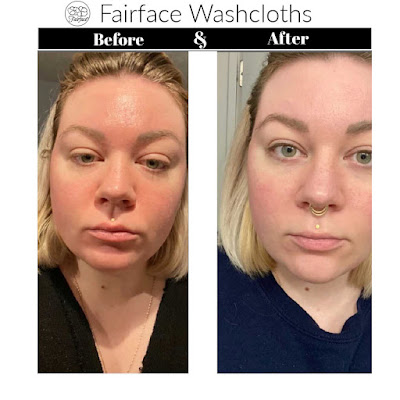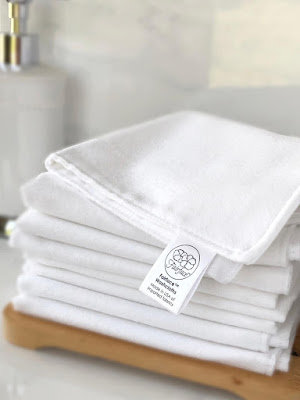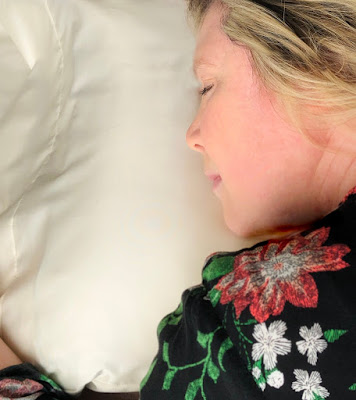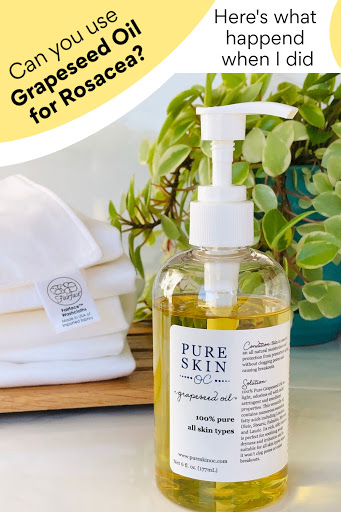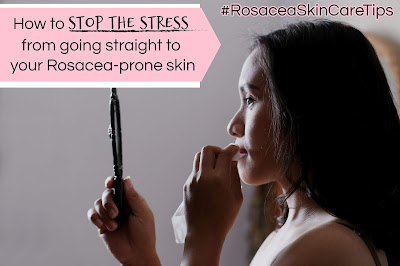"I have rosacea, and even gentle exfoliation flares up my skin. I bought microfiber cloths thinking their softness was the answer and I immediately regretted it. They burned my skin so bad - I looked like a tightly stretched shiny plastic tomato (it's funny now but at the time I freaked out).
A dermatologist suggested a soft flannel cloth and when I typed it into Etsy these came up. Shannon was so kind and helped me decide on these and it's like I'm washing my face with my fingertips.
I'm attaching a pic of my face (for everyone's benefit haha I did not plan on posting these) after a microfiber cloth (it's not greasy my skin was squeaky-shiny/polished like a shoe & badly stripped/burned), & a pic of the first day using a Fairface. A week after using them I had an even (not red) skin tone that honestly I've never had. WORTH it." - Haley (reposted with permission)
The best soft face cloths for Rosacea
Have you been there yourself? You tried something new on your face and it turned out to be a very bad idea? Maybe your face got really red, broke out, or felt like it was melting off? Sensitive skin can be very finicky like that, especially if you have Rosacea.
We wanted to share Haley's honest Fairface Washcloths review with you, in case you are looking for the right soft face cloths for your Rosacea-prone skin. Like Haley, maybe you have tried other washcloths on your sensitive skin, hoping they would be gentle enough, but ended up causing irritation and redness.
Dermatologists recommend using soft, cotton flannel cloths, like Fairface Delicates, to wash your face gently, without using anything harsh that can cause your skin to get red and irritated, like the microfiber cloths did to Haley's skin.
Rosacea-prone skin also means skin prone to irritation, inflammation and redness, so gentle products are a must for keeping your skin calm and even. And that's where Fairface Washcloths come in.
What washcloths should I use on Rosacea prone skin?
What do you currently use to wash your face, if you have Rosacea or sensitive skin? Have you tried Fairface Washcloths?Fairface Washcloths help reduce redness and irritation when you wash your face because the soft flannel glides across your face and doesn't drag or pull. If you're using a cloth, or heaven forbid a tool on your face (eek!), that causes redness and irritation, it is most likely because the material it is made out of is too harsh and abrasive to your skin. You don't need to scrub to get your face clean. It can actually do more harm than good.
If you have Rosacea or sensitive skin and haven't found a cloth that is gentle enough to wash your face with, look no further. You've found it. Fairface Washcloths are the only face cloth you should be using on your sensitive skin and like Haley, after using Fairface Washcloths, she's never seen her skin tone so even, and it's definitely worth it!
BUY THE SAME FACE CLOTHS HALEY IS USING that calmed her Rosacea skin

